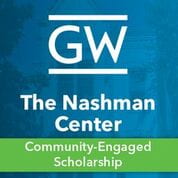This National Commission has recommended supporting civic education and service-learning through new legislation and appropriations designated to the US Department of Education and the Corporation for National and Community Service.
"The National Commission on Military, National, and Public Service is the first entity in American history charged with conducting a comprehensive and holistic review of all forms of service to the nation. While civic education and service-learning was not in the Commission’s mandate, it quickly become an issue the Commission studied closely. The Commission released its final report, Inspired to Serve, to Congress, the President, and the American public on March 25, 2020. The report covers a broad range of topics that impacts K-12 and higher education and you were recommended as someone who might be interested in our recommendations.
The Commission invites you to join a briefing on their final report, the briefings focused on higher education are on May 7 and May 19th, 1-2pm. Rsvp to Morgan Levey for the link: Morgan.N.Levey@inspire2serve.gov


